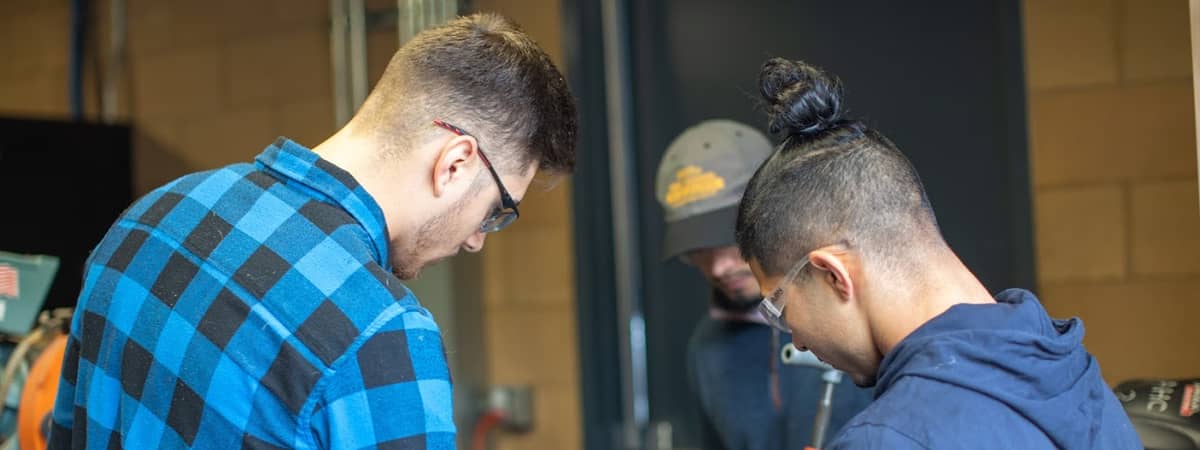Do you want to help make the world a better place through innovative design and problem solving? Do you like to figure out how things work? If you said yes to these questions and have an aptitude for math and science, you should consider becoming an engineer!
Engineers use science and math to create useful items and processes that are safe, economical, and efficient. They design the objects that we use every day, from simple tools to high-tech devices. Engineers design the technologies needed to sustain life, such as clean water, energy, transportation systems, medical devices, and more. Engineers create systems that allow us to explore outer space, to investigate the atom, to travel far distances, and to connect with each other.
Depending on their focus, students may choose from a variety of degree and certificate options in engineering, civil mechatronics, and engineering drafting and will get hands-on training in areas such as automation, robotics, CAD, civil engineering, surveying, and more.
If you are interested in turning your ideas into real products and processes, then engineering is for you.
This program will help you to:
- solve basic engineering problems using math, science, and engineering principles
- perform experiments and analyze data
- develop techniques, skills, and tools necessary in engineering education and practice
- recognize the need for life-long learning
- improve written and oral communication skills
- function professionally as an individual and within teams
Degrees and Certificates Offered
Each program has unique requirements. The order in which you take courses may affect your completion time. Visit the links below to view the program requirements and a general semester-by-semester course schedule.
Associate in Arts- Engineering
Certificate of Accomplishment- Engineering Drafting
To view all available degrees and certificates visit the Allan Hancock College course catalog.
Programs you may also be interested in exploring:
Contact Information
Department Chair
Dom Dal Bello
805-922-6966 ext. 3498
ddalbello@hancockcollege.edu
Administrative Assistant
Lori Coulter
805-922-6966 ext. 3201
lcoulter@hancockcollege.edu
Dean, Academic Affairs
Sean Abel
805-922-6966 ext. 3537
sean.abel@hancockcollege.edu
LOCATION
Santa Maria Campus
Bldg. M, Rm. 309
805-922-6966 ext. 3201


